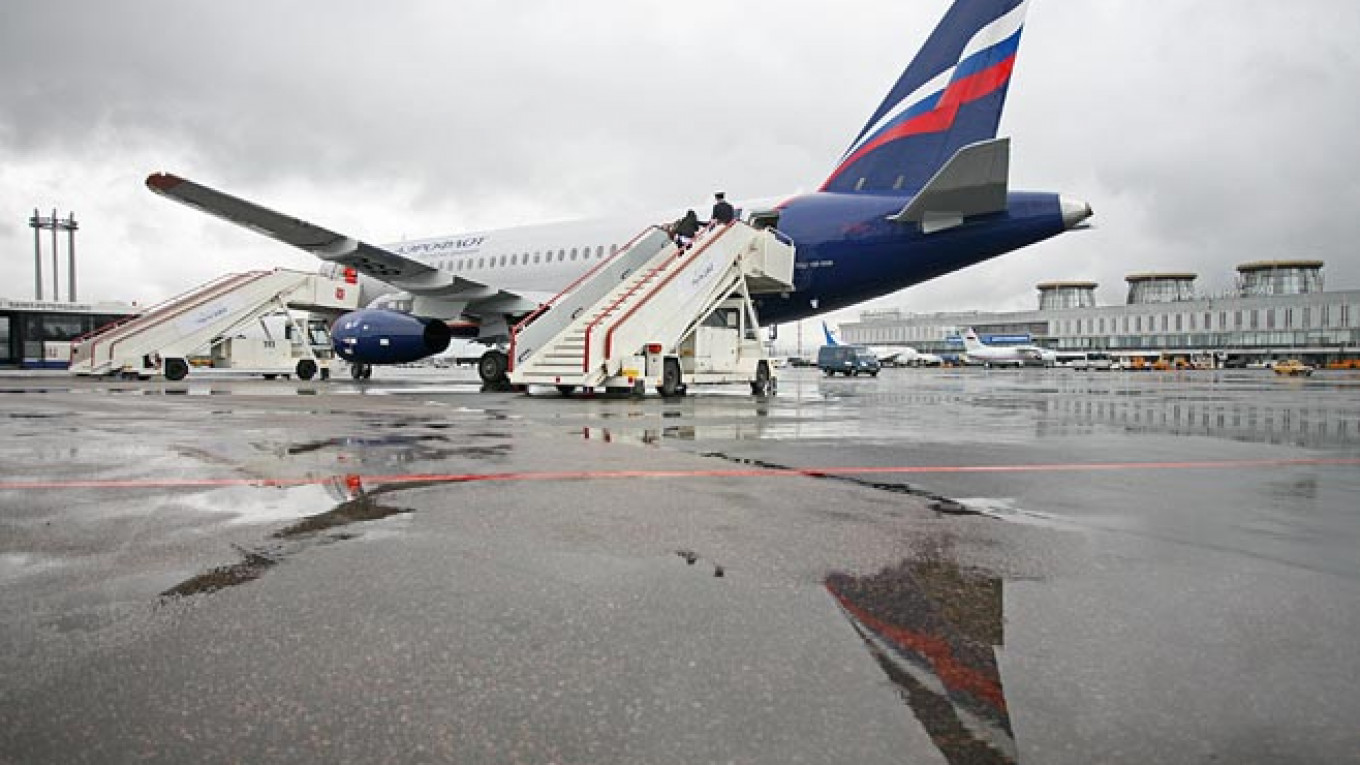A bill that would allow Russian airlines to offer nonrefundable tickets and be competitive in this regard with their foreign counterparts passed first reading in the State Duma on April 1 and is expected to go through the second reading already by week's end.
Following the voting, Sergei Reshulsky of the Communist Party told AviaPort news agency that the bill, which had been submitted to the Duma less than a week prior to voting, was rushed.
He said the lawmakers were told that the bill would be voted on just one day prior to the procedure and not everyone was able to examine it and offer suggestions. Initially the bill was scheduled to be voted on in May.
The only existing budget airline in Russia the law would theoretically benefit is Aeroflot's subsidiary Dobrolyot, which was slated to begin flights in the first half of 2014.
If passed, the initiative, lobbied by the Transportation Ministry, would allow airlines to offer nonrefundable tickets, reportedly reducing their overheads incurred due to ticket cancellations by 8 percent, an explanatory note to the bill said.
Under the current aviation rules, a passenger is entitled to a full refund for the ticket if the trip is cancelled 24 hours prior to departure and is penalized up to 25 percent of the ticket price if the airline is notified later.
The new law would differentiate the tickets as returnable and nonreturnable, thus affecting their price range, which could be beneficial for low-costers.
According to the transportation authorities, absence of nonrefundable tickets on offer is one of the key factors that restricts the growth of domestic budget airlines, making them less competitive with their foreign counterparts that widely apply the practice.
"Not just this single law but other initiatives that would liberalize air legislature on seat reservation, baggage allowance and catering on board are required to really help low-costers off the ground," said Andrei Rozhkov, a transport analyst at Metropol investment company.
These laws should also be adopted as soon as possible, he said, if domestic low-cost airlines were to engage in any form of competition.
But Dobrolyot, which is the possible benefactor of the rushed laws, is not yet ready to take advantage of them.
The company is not technically an airline as it does not have any planes, has not yet been granted a flight certificate by the regulator — the Federal Air Transportation Agency — and has not chosen a base airport.
"We are awaiting delivery of a brand-new Boeing 737-800 in April and more are to come in the following months," said Dobrolyot's spokesman Maxim Fetisov, adding that the company plans to operate eight airplanes by the end of the year and 40 planes by 2018.
However, Fetisov did confirm that the certification procedures were taking longer that expected.
Under the current laws, the airline is required to have at least eight planes to get the certificate from the Federal Air Transportation Agency, or Rosaviation, meaning Dobrolyot could start flights this summer only if granted an exception.
At the same time, absence of a certificate means the budget airline cannot choose a base airport.
"We cannot hold concrete talks as it is not yet considered an airline," said Alexei Raevsky, deputy head of commerce at Domodedovo Airport, initially planned as a possible base for Dobrolyot. "We can discuss the terms after they get a certificate from Rosaviation."
Alexei Bezborodov, the head of Infranews transportation research agency, said that at this point it is difficult to outline the future for the new airline.
"The law [on nonreturnable] tickets will likely pass but it is not so important. What is important are the operational costs for the airline," Bezborodov said. "And with no certificate and a base airport it is unclear how Aeroflot executives calculated these expenses."
Contact the author at a.panin@imedia.ru
A Message from The Moscow Times:
Dear readers,
We are facing unprecedented challenges. Russia's Prosecutor General's Office has designated The Moscow Times as an "undesirable" organization, criminalizing our work and putting our staff at risk of prosecution. This follows our earlier unjust labeling as a "foreign agent."
These actions are direct attempts to silence independent journalism in Russia. The authorities claim our work "discredits the decisions of the Russian leadership." We see things differently: we strive to provide accurate, unbiased reporting on Russia.
We, the journalists of The Moscow Times, refuse to be silenced. But to continue our work, we need your help.
Your support, no matter how small, makes a world of difference. If you can, please support us monthly starting from just $2. It's quick to set up, and every contribution makes a significant impact.
By supporting The Moscow Times, you're defending open, independent journalism in the face of repression. Thank you for standing with us.
Remind me later.






